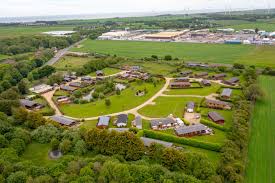Exploring the Legacy of The Forsytes

Introduction
‘The Forsytes’, penned by John Galsworthy, is a literary series that delves into the lives of a wealthy family in late Victorian and early Edwardian England. The narrative examines themes of social change, familial loyalty, and the consequences of wealth, reflecting the complexities of society during that time. The significance of ‘The Forsytes’ extends beyond its narrative, shaping the understanding of class dynamics and family structures, making it relevant even in today’s context.
Main Body
The saga, which comprises three novels and several interrelated stories, begins with ‘The Man of Property’, published in 1906. The story introduces the Forsyte family, primarily focusing on Soames Forsyte, a successful, property-minded man whose obsession with ownership signifies his struggles with emotional connections and personal relationships. The narrative captures the moral complexities and societal expectations of the British upper class, painting a vivid picture of the era.
Following the initial installment are ‘In Chancery’ (1920) and ‘To Let’ (1921), which continue to explore the evolving dynamics among the Forsytes as they confront love, loss, and changing social norms. The characters face challenges that reveal their vulnerabilities and conflicts, embodying the struggle between tradition and progress.
In recent years, ‘The Forsytes’ has gained renewed interest due to adaptations in film and television, highlighting its enduring themes and engaging storytelling. The BBC miniseries in 1967 and its revival in 2002 brought Galsworthy’s work to new audiences, cementing its status as a significant cultural reference. Current adaptations and theatrical performances continue to resonate with modern viewers, illustrating the timelessness of the narrative.
Conclusion
‘The Forsytes’ not only offers a compelling insight into the societal structures of its time but also serves as a mirror reflecting the ongoing tensions between individual desires and societal expectations. As struggles associated with class and family loyalty persist in today’s world, Galsworthy’s observations remain pertinent. The legacy of ‘The Forsytes’ is one of rich literary engagement, probing into the heart of human relationships against a backdrop of societal evolution, ensuring its relevance for readers and audiences alike.









